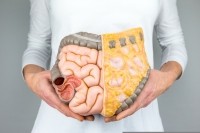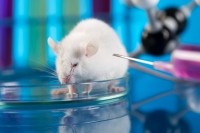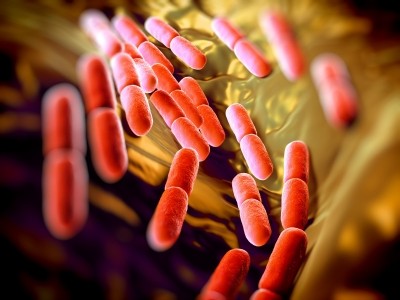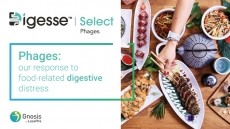Gut microbes’ protective effects compromised by alcohol

The results provide a viable mechanism of action to explain the damaging effects of alcohol, not just to the host’s organs but also its delicate microbiome ecosystem.
Patients with chronic alcohol abuse and alcoholic liver disease are known to undergo changes in the composition of intestinal microbial communities. (1,2)
Alcohol-associated microbial imbalance is characterised not only by changes in bacteria make-up but also by bacterial overgrowth in the small intestine.
These negative changes in the microbiota allow the development of liver disease because natural gut antibiotics can prevent and reduce features of alcoholic liver disease in animal models.
Researchers from the University of California and San Diego School of Medicine began by looking into the way REG3G – a naturally occurring antimicrobial - promoted progression of alcohol-induced liver disease.
It is known from previous studies that overexpression of this antimicrobial in the intestine impairs bacterial colonisation, reduces bacterial movement, and protects mice from alcohol-induced steatohepatitis.
Study specifics

They genetically bred REG3G-deficient mice and started them on a diet of alcohol for two months. These mice were then monitored and found to exhibit greater bacterial migration from the gut to the liver than normal mice who received the same amount of alcohol.
REG3G-deficient mice also developed more severe alcoholic liver disease than normal mice.
The team then extended their investigations and began looking into increasing numbers of the REG3G gene in lab-grown intestinal cells. They found that more REG3G reduced bacterial growth. Likewise, restoring REG3G in mice protected them from alcohol-induced fatty liver disease, a condition that precedes end-stage cirrhosis.
The scientists also looked at human small intestine samples to apply some of their knowhow to a human model. They discovered alcohol-dependent individuals had lower levels of REG3G than healthy people, with bacterial increased growth growing within the region.
Mechanism of action

“REG3G (and REG3B) target different bacteria, but deficiency in either lectin exacerbates alcoholic liver disease, while overexpression of the Gram-positive bacteria targeting protein REG3G is sufficient to decrease disease,” the paper described.
“It is therefore conceivable that the number of mucosa-associated bacteria rather than the simple bacterial phylotype determines bacterial translocation and alcoholic liver disease.”
The researchers also believed that a REG3G deficiency did not affect the immune response suggesting that changes in bacterial movement did not result from impaired intestinal immunity.
This was supported by findings from mice which overexpressed REG3G in the intestine. “The exact mechanism that allows bacteria to transport through intestinal cells is poorly understood and deserves further investigation,” the researchers said.
Previous studies have identified antimicrobial molecules with an advanced ability to rapidly kill or inactivate microorganisms. Function of REG3 is reduced by chronic alcohol consumption in mice and humans has been shown previously (1, 2).
“A strategy designed to increase intestinal concentrations of REG3 lectins or their production by intestinal epithelial cells might be developed to prevent alcohol-induced liver disease,” they said.
The study concluded that future research was required to determine whether REG3 lectins were useful as an intervention approach to slow down alcohol-induced liver disease.
Source: Cell Host and Microbe
Published online ahead of print, http://dx.doi.org/10.1016/j.chom.2016.01.003
“Intestinal REG3 Lectins Protect against Alcoholic Steatohepatitis by Reducing Mucosa-Associated Microbiota and Preventing Bacterial Translocation”
Authors: Lirui Wang, Derrick E. Fouts, Peter Stärkel, Phillipp Hartmann, Peng Chen, Cristina Llorente, Jessica DePew, Kelvin Moncera, Samuel B. Ho, David A. Brenner, Lora V. Hooper, Bernd Schnabl.














